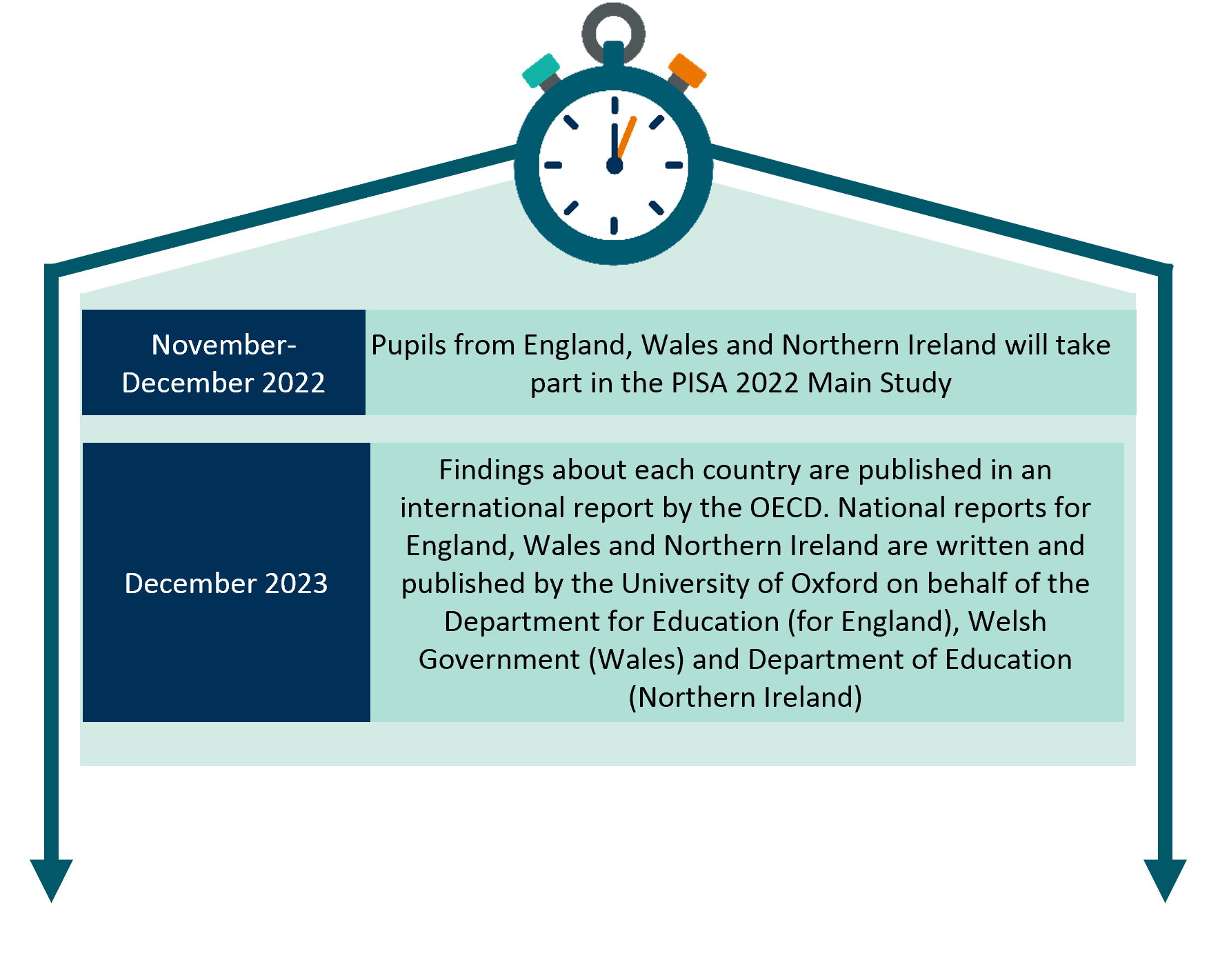What is PISA?
Conducted in over 80 countries, the Programme for International Student Assessment (PISA) is the world’s largest international study which compares education systems worldwide. Developed by the Organisation for Economic Cooperation and Development (OECD), the study takes place every 3 years and helps understand how well 15-year-old pupils can apply knowledge and skills in mathematics, science and reading. However, due to the coronavirus pandemic, the PISA 2021 assessment has been postponed to 2022, with over 80 countries participating in this cycle.
The purpose of the study is to produce information on pupils’ learning and development, in order to learn more about how best to support pupils in mastering key subjects. PISA results are used by our government and governments from around the world to compare the strengths and weaknesses of their education systems. It provides an opportunity to compare our achievement internationally and to learn from the policies and practices of other countries.
Pearson and their partners at the OUCEA, which is based in the Department of Education at Oxford University, have been commissioned to carry out the PISA 2022 study in England, Wales and Northern Ireland on behalf of their governments.
If you would like to see examples of the type of questions which are included in the PISA study and questionnaires, they can be found here and here. More information can also be found on the OECD’s PISA website.
PISA timeline:
Further information:
You can view past national reports here.
More information can also be found on the OECD’s PISA website.
A recording of the webinar ‘What can we learn from PISA 2018 and what can we expect from PISA 2022? Lessons learned from England, Northern Ireland, and Wales’ is available here.
You can learn more about the results of the PISA 2018 cycle for England, Northern Ireland, and Wales here.
The following video provides more background information on PISA:
